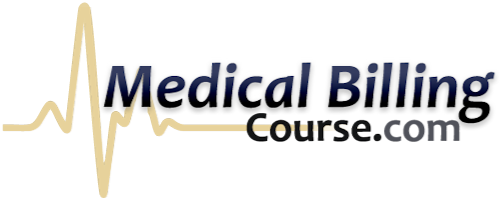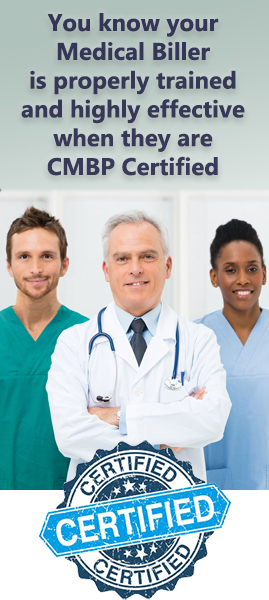- 09/12/2025
- Posted by: Medical Billing Course
- Categories: Medical Billing, Medical Billing Course, Medical Billing Jobs

Medical billing education requirements can seem like a maze for newcomers and career changers alike.
You might hear about fast-track programs, online courses, or even degrees in healthcare, but which path will actually open doors?
The truth is, the field welcomes a wide range of backgrounds—but understanding exactly what’s required (and what isn’t) makes all the difference when you’re ready to get started.
This article walks you step by step through every major medical billing education requirement, from the minimum qualifications and essential skills to choosing between a certificate, diploma, or degree.
You’ll get honest answers about course duration, online options, industry certifications, and what top employers are really looking for.
Whether you’re planning your first move or seeking a career upgrade, here’s everything you need to choose the right medical billing education path for your goals.
What Are the Minimum Education Requirements for Medical Billing?
Before you enroll in a program or start applying for jobs, it’s smart to know the minimum requirements for medical billing.
The field is refreshingly accessible, but it also rewards those who prepare well.
High School Diploma or GED: The Baseline
Nearly every entry-level medical billing job and training program requires a high school diploma or GED. No formal college degree is needed to get started.
Employers and schools simply want to see that you have basic math, reading, and communication skills.
- Tip: If you’re still in high school or working toward your GED, focus on courses in English, math, and computer applications. These skills translate directly to daily billing tasks.
Basic Computer and Communication Skills
Modern medical billing is digital. You’ll need basic proficiency with computers, including:
- Typing and word processing
- Using email and internet browsers
- Navigating spreadsheets (Excel or Google Sheets)
- Comfort with digital communication (chat, video, phone)
Strong communication skills are also crucial; you’ll be reading clinical notes, clarifying info with providers, and sometimes speaking with insurance companies or patients.
No Mandatory College Degree
You do not need a college degree to begin your medical billing career.
While some advanced roles (like management) might prefer an associate or bachelor’s degree, entry-level positions are wide open to those with the right training and certification.
Certificate vs Degree: Which Is Right for Medical Billing?

Choosing between a medical billing certificate, diploma, associate degree, or even a bachelor’s degree is one of the biggest decisions you’ll make.
Each has unique pros and cons, and the best path depends on your goals, timeline, and learning style.
Medical Billing Certificate and Diploma Programs
Certificates and diplomas are the most popular route for new billers, and for good reason:
- Duration: Most programs last 4 to 12 months. Accelerated online options, like Medical Billing Course, can be completed in as little as 4–6 weeks.
- Format: Available both online and in-person. Online medical billing education lets you learn at your own pace, from anywhere.
- Focus: Courses zero in on essential skills: coding basics, claims management, insurance rules, billing software, and regulatory compliance.
- Outcome: Graduates are prepared for entry-level jobs and may be eligible to sit for industry certification exams like CBCS (Certified Billing and Coding Specialist) or CPB (Certified Professional Biller).
Pros:
- Fastest route to employment
- Lower cost than degree
- Hands-on, job-ready skills
- Flexible scheduling (especially online programs)
Cons:
- Limited general education (writing, science, etc.)
- Some advanced jobs may require more education over time
Tip: Programs like Medical Billing Course offer not just a rapid path to certification, but also practical training with real billing software, live support, and job placement resources, making them ideal for career changers or anyone wanting to break in quickly.
Associate Degrees in Medical Billing or Health Information
Some colleges and community colleges offer associate degrees in health information management or medical billing/coding.
- Duration: Typically 18 months to 2 years
- Format: Online, on-campus, or hybrid
- Focus: Combines billing/coding classes with broader courses (writing, math, business)
- Outcome: Opens doors to advancement: supervisory, specialist, or health information technician roles
Pros:
- Deeper understanding of healthcare systems
- Meets education requirements for more technical or specialized billing roles
- Credits may transfer toward a future bachelor’s degree
Cons:
- Takes longer, costs more
- Not necessary for most entry-level billing jobs
Bachelor’s Degrees: Are They Required?
You won’t find a “medical billing” bachelor’s degree, but related fields (health information management, healthcare administration) can open doors for management or health data analyst positions.
For most billers, though, a certificate or associate degree is more than enough to get started.
How Long Does Medical Billing Training Take?
Program length is one of the most common questions. Here’s what to expect:
Certificate and Diploma Programs
- Accelerated online programs: 4–6 weeks (full-time study, e.g., Medical Billing Course)
- Standard online or on-campus programs: 3–6 months
- In-depth diploma programs: 7–12 months
Most people can complete a solid certificate program in under a year, sometimes much less.
Associate Degree Programs
- Typically 18–24 months
- Includes general education as well as medical billing/coding curriculum
Bachelor’s Degree Programs
- 4 years (full-time), though rare for entry-level billing
Takeaway: If you want to get into the workforce quickly, a certificate or diploma from an accredited, industry-recognized provider is usually the fastest option. Online programs, in particular, allow you to go at your own pace.
Medical Billing Program Prerequisites and Admission Requirements
Most certificate, diploma, and degree programs keep barriers to entry low. Here’s what you’ll typically need:
High School Diploma or GED
- Nearly universal requirement
- Proof may be needed for financial aid
Basic Computer Skills
- Many programs require a short skills test or self-assessment
Placement Tests or Prerequisites
- Some colleges may ask for a basic English or math test to ensure you’re ready for the coursework
- Advanced programs may require prerequisite courses or a minimum GPA
Application Materials
- Application form
- Proof of prior education (transcript or diploma)
- Sometimes a personal statement or interview
Tip: If you’re enrolling in an online program like Medical Billing Course, requirements are usually streamlined, making it accessible for adults returning to school or changing careers.
The Role of Certification in Medical Billing Careers
While certification isn’t always legally required, industry certifications make a big difference for your resume and job prospects. Here’s what you should know:
Why Certification Matters
- Many employers prefer or require candidates with recognized billing certifications
- Certifications show you understand medical codes, payer rules, compliance, and software systems
- Certified billers often earn higher salaries and advance faster
Popular Certifications
- CBCS (Certified Billing and Coding Specialist) – Offered by NHA
- CPB (Certified Professional Biller) – From AAPC
- CPC (Certified Professional Coder) – Also from AAPC, more coding-focused but valued for billing/coding hybrid jobs
- CMRS (Certified Medical Reimbursement Specialist) – American Medical Billing Association
How to Prepare for Certification
Many online certificate programs, including the Medical Billing Course, specifically prepare you for these exams, sometimes including the exam fee as part of tuition.
Renewal & Continuing Education: Most certifications require renewal every 1–2 years, plus continuing education to keep up with healthcare changes.
Choosing the Right Medical Billing Education Path for You
With so many options, online certificates, associate degrees, and campus-based programs, how do you pick the right one?
Factors to Consider
Accreditation: Make sure your program is recognized by reputable bodies (such as AAPC, AHIMA, or AMBA).
Job Placement Support: Top programs offer resume help, interview prep, and direct job placement services. Medical Billing Course, for instance, gives you access to job boards and placement assistance.
Curriculum Quality: Look for hands-on training, real billing software experience, and up-to-date regulatory education.
Schedule Flexibility: Working adults or career changers often prefer online education. Choose a program with self-paced modules or flexible start dates.
Cost and Financial Aid: Compare tuition, payment plans, and what’s included (books, certification exam, software access).
Why an Online Program Might Be Best
Online education, especially through trusted sources like Medical Billing Course, combines the convenience of learning at home with direct access to live support, peer communities, and real-world software.
These programs often compress months of learning into weeks without sacrificing job readiness.
Conclusion: Making the Right Move Toward a Medical Billing Career
Medical billing is one of the most accessible, flexible, and rewarding fields in healthcare support.
With just a high school diploma or GED, you can enter the field, but earning a recognized certificate or diploma dramatically boosts your job prospects.
Decide whether a fast-track certificate, an in-depth associate degree, or further education matches your goals, timeline, and budget.
If you’re ready to start your career, don’t settle for trial and error. Choose a program that fits your needs—like the accelerated, hands-on, and job-focused options at Medical Billing Course.
With the right training, certification prep, and support, you’ll be set to launch a successful career in medical billing, no matter where you’re starting from.
Medical Billing Education FAQs: Requirements & CertificationsFAQs
What level of education is generally required for medical billing?
A high school diploma or GED is required for most entry-level medical billing programs and jobs. Additional training, such as a certificate or diploma program, is strongly recommended for better job prospects.
Is a high school diploma sufficient for medical billing training?
Yes, it is the minimum requirement. However, completing a certificate or diploma program, especially one that includes hands-on training and certification prep, will greatly improve your chances of getting hired.
Can I get a job in medical billing with just a certificate?
Absolutely. Many employers hire candidates who have completed a reputable certificate or diploma program, especially if it prepares you for industry certification exams like the CPB or CBCS.
Are there specific college degrees recommended for medical billing?
While a college degree is not required, some pursue an associate degree in health information management or a related field for advancement. Bachelor’s degrees are rare but can help with management or analyst roles.
What are the minimum requirements to enroll in a medical billing program?
You’ll typically need a high school diploma or GED, basic computer skills, and sometimes a placement test. Many online programs, like MedicalBillingCourse.com, keep prerequisites minimal to encourage new learners.

